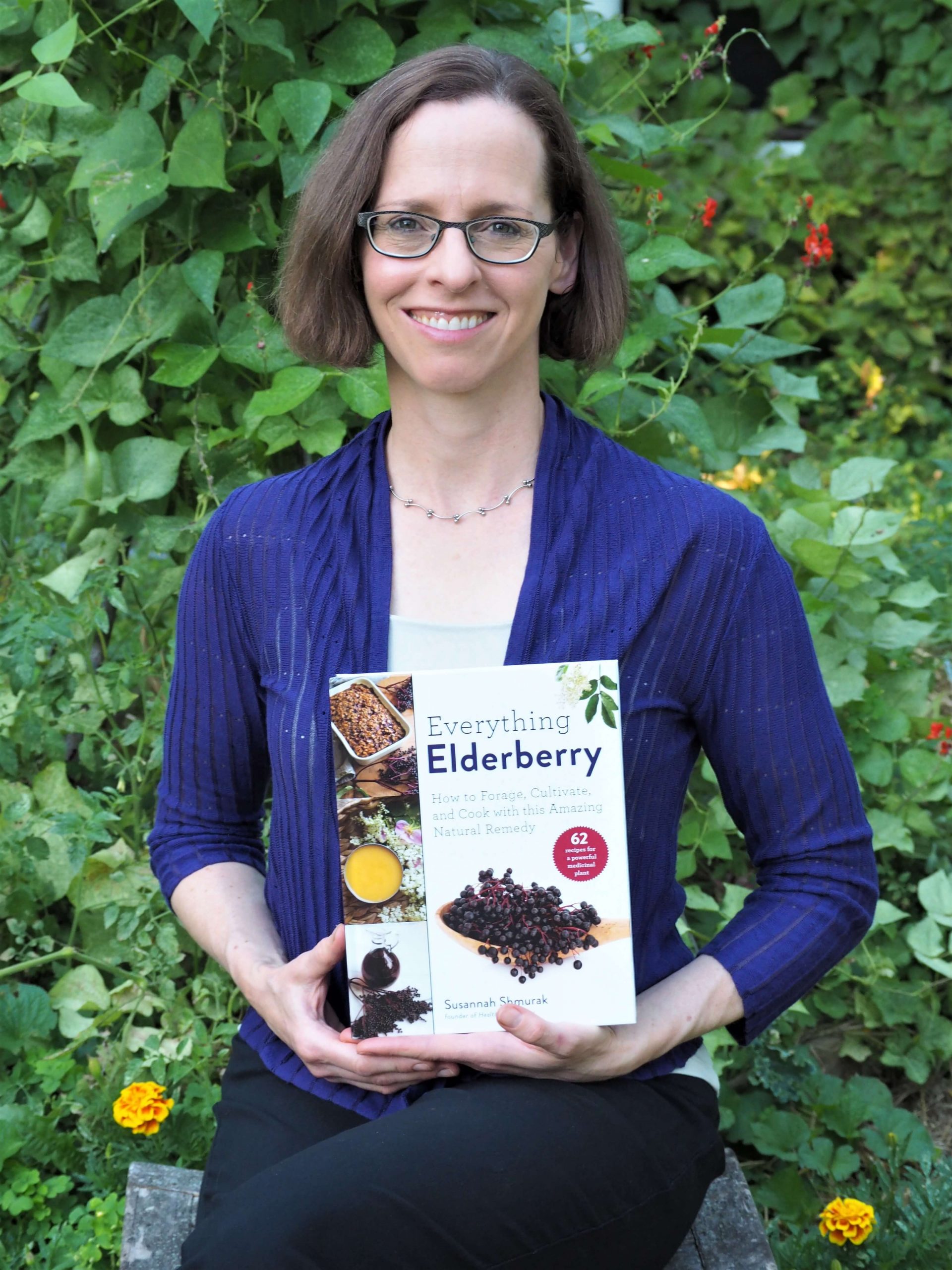Last Updated on December 28, 2023
Unlike most articles comparing gas vs. electric stove tops out there, this one isn’t about which cooks better or costs less, but which is safest for you and your family.
If you’re considering a new range, please read this so you understand the potential health impacts of the choice you make.
And if you’re not shopping for a new stove, this post should help you understand how to use whatever range you do have as safely as possible.
2023 Update: More people are paying attention to health concerns connected to the use of gas stoves thanks to publicity surrounding a new study that links the use of gas stoves to childhood asthma. Read on to better understand the health risks posed by gas stoves and how best to mitigate them.
Top workarounds if you’ve got a gas stove:
- Always ventilate when you use the stove. If you don’t have a vent fan, open a window and use a HEPA air filter to remove pollutants.
- Consider alternative ways to cook so you don’t use the stove. For heating water, try an electric kettle, which will also save on energy costs. An inexpensive portable cooktop can help as well.
Gas vs. Electric Stove Tops: How to Choose
Ask any serious cook, and they will probably tell you cooking on a gas stove is the only way to go.
That’s what I was told when I was choosing appliances after we gutted our 100-year-old house over a decade ago. I’ve been “cookin’ with gas” ever since.
(This widespread message even inspired this incredible — and incredibly awful! — “music” video.)
As you’ve probably discovered reading around on this site, I’m always learning about how many common tools of our daily lives turn out to affect our health in ways most of us hadn’t realized. As a result, over time I’ve been changing the way we do things in my effort to create a healthy home.
Phasing out plastics and choosing plastic alternatives, for example. Making sure all our cleaners are made with naturally-derived ingredients or using simple homemade cleaners. Helping to reduce chemical exposure by choosing non-toxic personal care products for the whole family. Getting a high-quality water filter for our drinking water. Making sure remodeling projects are done with greener, safer materials.
Now I’m eyeing you, 16-year-old gas stove.
Why? Turns out though many believe gas is superior for cooking, gas stoves aren’t the greatest for indoor air quality.
(What improves indoor air quality? Plants that clean indoor air and HEPA air filters.)
I am sorry to once again be the bearer of bad news, but that is the world we live in. Many of the tools we rely on in our daily lives, though convenient, turn out not to be the best for our health.
Whether or not you’re in the market for a new stove, the info below should help you limit the pollutants your cooking releases into your home, even if you have a gas range. Here’s what to know about gas vs. electric stove tops.
Gas vs. Electric Stove Tops: Health Impacts of Cooking on a Gas Stove
The main concern with gas ranges are the compounds they can release into the air when you cook.
All cooking generates particulates, but gas stoves add a cocktail of other chemical compounds that pollute indoor air. Some estimates suggest that in many homes the levels of these compounds far exceed clean air guidelines.
A study of 6000 California households found that cooking on gas stoves without ventilating routinely exposed people to elevated levels of nitrogen oxide, formaldehyde, and carbon monoxide well above safety guidelines. They note that using vent fans brought levels down significantly, though vents don’t remove all these compounds from indoor air. A 2022 study confirmed these findings, noting that levels exceeded standards set for hourly outdoor exposure to nitrogen oxides in a matter of minutes.
I don’t know about you, but I’d rather not live in a house that should have air quality warnings when I cook.
One study found that indoor air pollutants had health impacts across the population equivalent to that of car accidents. Here’s a write up in the New York Times about the pollution cooking causes if you want to know more.
Gas vs. Electric Stove Tops: Why to Consider an Electric Range
Now at some point in your life, you’ve undoubtedly had to cook on one of those sad old electric stoves with the not-terribly attractive coils that are impossible to clean. But electric stoves have come a very long way, and electric ovens are actually preferred by many bakers for their ability to heat evenly. (Though Consumer Reports tests found a lot of variety in performance — some gas and electric ranges performed better than others in all categories.)
Electric ranges also tend to cost less. And if your kitchen is not already plumbed for gas, going with an electric stove will save you quite a bit of money on bringing in a gas line.
But even if you already have gas in your kitchen, here are reasons to consider switching to electric when you’re ready to replace your range:
- You’ll cut indoor air pollution when you don’t use gas to cook
- Electric ranges are more efficient
- Electricity can come from solar (either home solar power or community solar subscription or a combination), so it’s a fossil-free way to cook, which helps to shrink your carbon footprint
- Some find cleaning a flat stove top easier than a gas range, though you do need to be careful to avoid damaging it
Now I won’t lie, there are some downsides to electric stoves, like not being able to cook in a power out. But in more 16 years with this gas stove and a decent number of power outs, I’ve never tried to light my stove and cook by candlelight. Of course, if the power were to stay out longer than the few hours of most outages, maybe I’d regret the decision to go electric. Though I’ve read many modern gas stoves don’t work in a power out either!
Some cooks really prefer the way gas heats and like the extra feedback a visible flame provides. And glass cooktops do require some special care to prevent damage.
–> Useful to know: The Inflation Reduction Act provides many incentives to help people get fossil fuels out of their homes. The act includes some generous rebates to help pay for induction stoves and installation wiring and installation costs. You can check eligibility here
Gas vs. Electric Stove Tops: What to Know About Induction Stove Tops
Electric stovetops are increasingly using induction technology, which is a much more efficient way to transfer heat (green points for efficiency). I find the energy efficiency very appealing, of course, and there are some other advantages, like precision and a cool surface, which you can read about here.
BUT induction stovetops may also expose you to additional EMFs, or electromagnetic fields, which recent studies suggest may have some negative impacts on health.
Note that only cell phone radiation has been studied in the very expensive, multi-year way that’s required for scientific proof these days, so we can’t say definitively that induction cooktops have the same effects. But we also don’t have definitive proof they don’t. Here’s a study that found the EMFs from induction cooktops exceeded guidelines at the close distances required for cooking.
Induction cooktops may also interfere with the function of pacemakers, so bear that in mind if someone in your household has one.
While energy savings is a great thing, if you’re avoiding gas for health reasons, introducing something else possibly damaging to health maybe isn’t the smartest. There’s some controversy over the dangers of EMFs, however.
Here’s a thorough explanation of the research we have to date, though I will say that just because a major governmental body has pronounced something safe doesn’t mean it actually is, only that a causal relationship hasn’t been proven beyond a doubt.
In many cases, we can’t prove causality because we can’t experiment on human subjects. In other cases, study designs produce highly flawed results, as is the case with the recent FDA study on BPA safety. Once you understand how regulatory bodies determine safety, I suspect you’ll also be very skeptical of governments pronouncing something safe.
On the other hand, we don’t use stoves for long each day, so the level of additional radiation — especially when compared to frequent use of cell phones or wi-fi — is quite small.
You’ll have to weigh the pros and cons for yourself, but in the absence of information on the safety of induction cooktops, we’re going to go with the conventional electric stovetop. Our heating time might be a bit longer and energy use a bit higher, but I’ll avoid adding another source of EMFs to our home, and we won’t have to replace all our cookware to find ones compatible with induction technology.
Gas vs. Electric Stove Tops: How to Protect Your Health if You Have a Gas Range
If you have a gas stove and are not in a position to replace it, at least follow some safer-use guidelines:
- Always turn on the vent fan when you cook to get as much of the fumes as you can out of your house. (Be sure the vent goes to the outdoors — some badly-done installations vent fumes back inside the house, in which case you should open a window.)
- Cook on the back burners so more of the combustion byproducts get sucked up by the vent rather than the cook.
- Have your range serviced if the flame isn’t blue.
- Choose the best quality vent fan you can, as some move air much more effectively than others.
–> Other smart workarounds: Don’t use the stove when you don’t have to. For heating water, an electric kettle will both cost less to run and prevent pollution in your home. You might also consider an inexpensive portable cooktop to use when you just need one pan heated.
With Either Gas or Electric, Ensure Good Ventilation
No matter what stove you get, a powerful vent fan that empties to the outdoors is a must. Just the compounds created by cooking many foods — with either a gas or an electric range — turn out to be respiratory irritants.
Also, avoid the self-cleaning function of any oven, which releases fumes unsafe for you and your pets.
Do you cook with gas or electricity? What are your thoughts on the pros and cons of gas vs. electric stove tops?
Pin to save this info on gas vs. electric stove tops for later!
gas vs. electric stove tops photo Credits: stevepb, Bru-nO, p_kennedy123

Susannah is a proud garden geek and energy nerd who loves healthy food and natural remedies. Her work has appeared in Mother Earth Living, Ensia, Northern Gardener, Sierra, and on numerous websites. Her first book, Everything Elderberry, released in September 2020 and has been a #1 new release in holistic medicine, naturopathy, herb gardening, and other categories. Find out more and grab your copy here.





 Hi, I'm Susannah, a garden geek, energy nerd, and fan of healthy food and natural remedies. Need some simple, practical solutions for living healthier and greener? You've come to the right place! More about me and my green projects
Hi, I'm Susannah, a garden geek, energy nerd, and fan of healthy food and natural remedies. Need some simple, practical solutions for living healthier and greener? You've come to the right place! More about me and my green projects